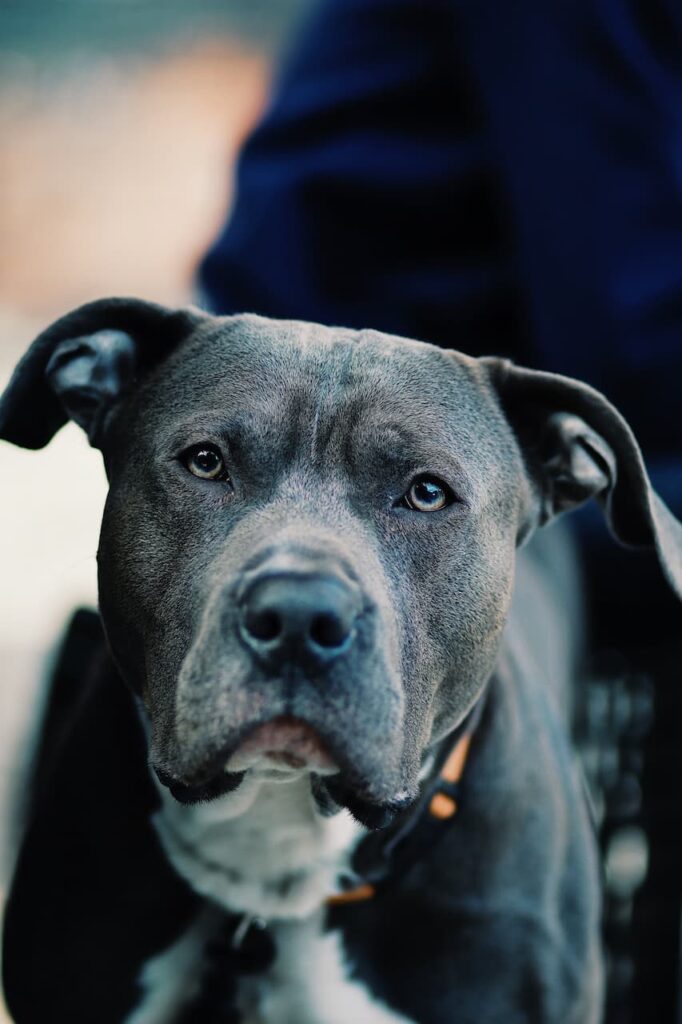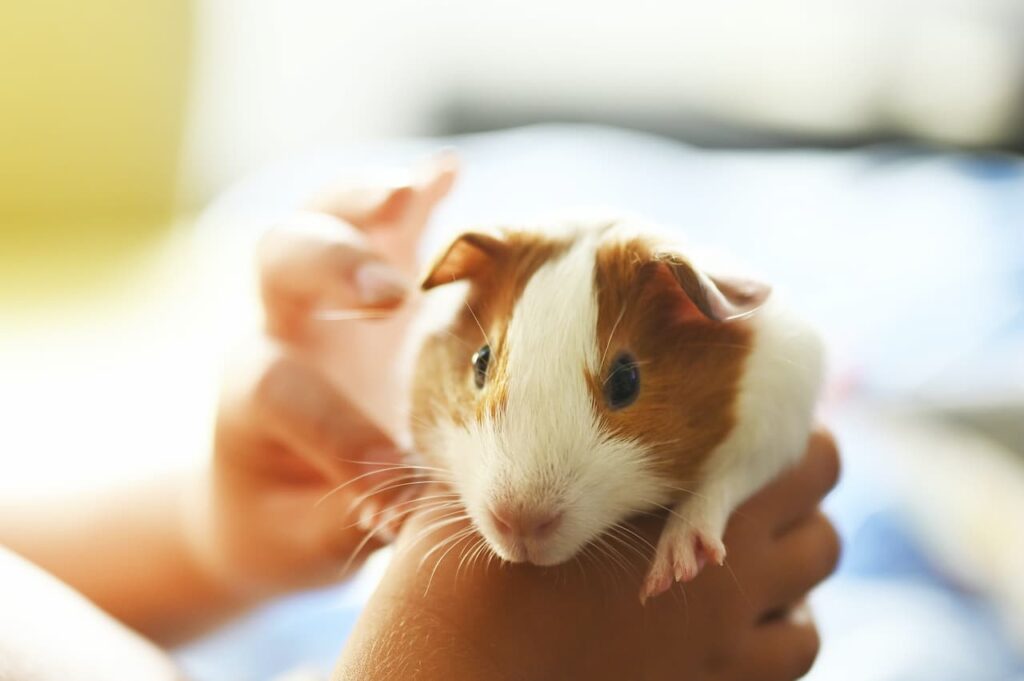Unlocking the Cauliflower Conundrum: Can Guinea Pigs Eat Cauliflowers?
Yes, guinea pigs can consume cauliflowers. There are a few things you should consider before introducing them to your piggy’s food. The health benefits of guinea pigs are numerous, but there are also some drawbacks.
In the realm of pet care, ensuring optimal nutrition for our furry companions is paramount. For guinea pig enthusiasts, understanding the ins and outs of their dietary needs is essential for their well-being and longevity. As such, questions frequently arise about the suitability of various foods, including vegetables like cauliflower, in their diet. So, can guinea pigs eat cauliflower? Let’s embark on a journey into the nutritional landscape of cauliflower and its compatibility with the dietary requirements of these beloved rodents.
Table of Contents
Toggle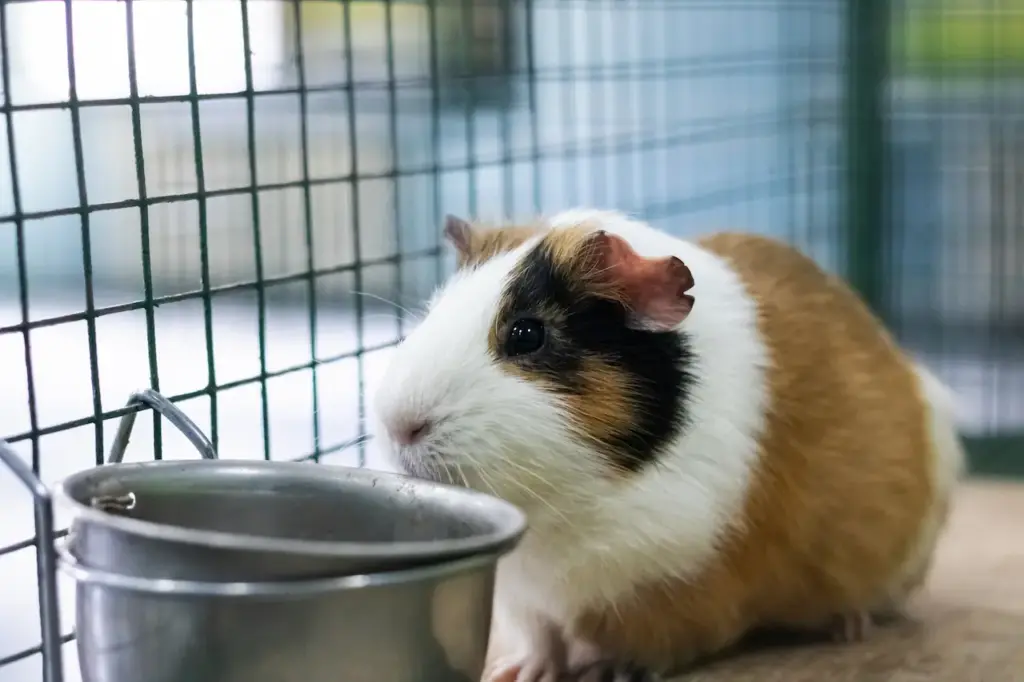
Cauliflower, a cruciferous vegetable belonging to the Brassicaceae family, has gained popularity in human diets for its versatility and health benefits. Rich in vitamins, minerals, and phytonutrients, cauliflower boasts an impressive nutritional profile. It’s a good source of vitamin C, vitamin K, folate, and several B vitamins, along with minerals like manganese and potassium. Additionally, cauliflower is low in calories and carbohydrates, making it an attractive option for those seeking to maintain a balanced diet.
One of the primary concerns when introducing new foods to a guinea pig’s diet is their ability to meet the animal’s specific nutritional requirements. Guinea pigs, like humans, require vitamin C in their diet, as they cannot synthesize it internally. A deficiency in vitamin C can lead to serious health issues, such as scurvy. Fortunately, cauliflower contains vitamin C, albeit in moderate amounts, which can contribute to meeting a guinea pig’s daily requirements.
Moreover, the fibre content of cauliflower is beneficial for digestive health in guinea pigs. Fiber aids in maintaining gastrointestinal motility and can prevent issues such as constipation and bloating. However, it’s important to note that cauliflower contains a significant amount of indigestible carbohydrates, which may cause gas and bloating in some guinea pigs, particularly if introduced suddenly or in large quantities.
While cauliflower can provide valuable nutrients to guinea pigs, it’s crucial to exercise caution when incorporating it into their diet. Like many cruciferous vegetables, cauliflower contains compounds called glucosinolates, which can impart a bitter taste and may cause digestive upset in sensitive individuals. These compounds can be partially mitigated by cooking or steaming the cauliflower before offering it to your guinea pig, as heat can break down some of the indigestible components.
Furthermore, guinea pigs have sensitive digestive systems that require a gradual transition when introducing new foods. Abrupt dietary changes can lead to gastrointestinal disturbances, such as diarrhea or stomach upset. Therefore, cauliflower should be introduced slowly and in small quantities, allowing the guinea pig’s digestive system to adapt gradually.
Another consideration when feeding cauliflower to guinea pigs is the risk of choking hazards. While guinea pigs are adept at chewing, foods with hard or fibrous textures, like raw cauliflower florets, may pose a choking risk if not properly prepared. To mitigate this risk, cauliflower should be chopped into small, manageable pieces or cooked until soft before offering it to your guinea pig.
Additionally, it’s essential to consider the overall balance of a guinea pig’s diet when incorporating cauliflower. While cauliflower can be a nutritious addition, it should not replace other essential components of their diet, such as hay and fresh greens. A varied diet that includes a mix of vegetables, fruits, and hay is crucial for meeting a guinea pig’s nutritional needs and promoting overall health.
In summary, cauliflower can be included as part of a guinea pig’s diet in moderation, provided it is introduced gradually and prepared appropriately. Its nutritional benefits, including vitamin C and fibre content, can contribute to a well-rounded diet for guinea pigs. However, caution should be exercised to avoid potential digestive issues and choking hazards. By offering cauliflower as a supplemental treat alongside a diverse array of fresh vegetables and high-quality hay, you can provide your guinea pig with a balanced and enriching diet that supports their health and vitality.
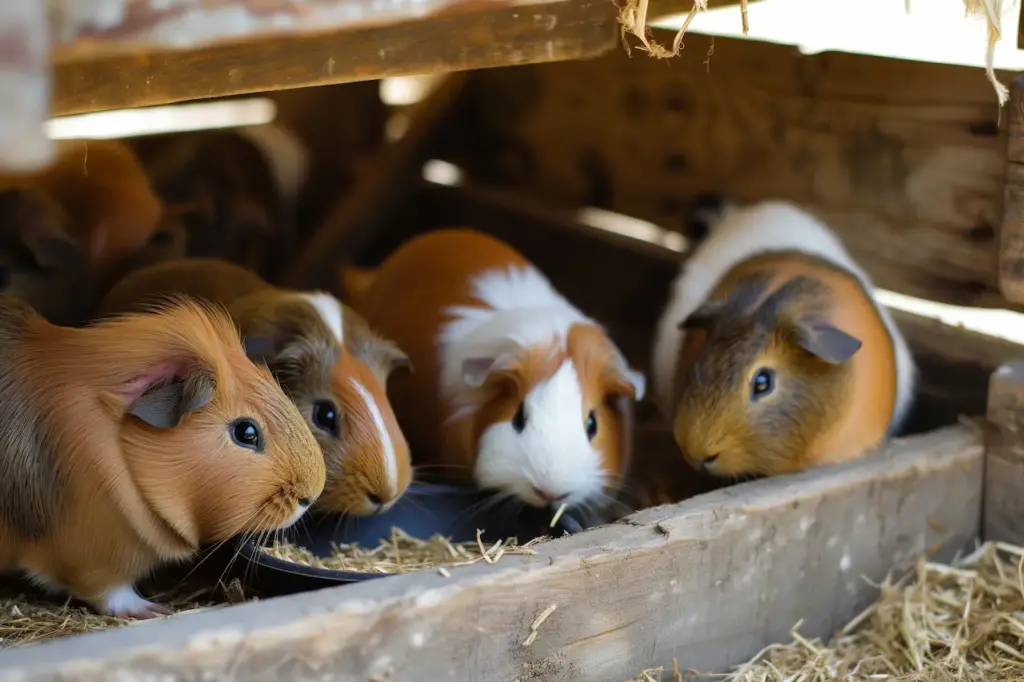
What Vitamins And Nutrients Does Cauliflower Contain?
Vitamin C
Vitamin C is a must-have in guinea pigs’ diets to prevent scurvy. It also boosts their immune system and helps them fight illnesses. It is important to fight off the infections that guinea pigs are susceptible to. Untreated infections can be deadly, so we need to make sure that they do not get them. Vitamin C prevents scurvy which is a problem for guinea pigs. Cauliflower has 46.4mg per 100g.
Vitamin K
Vitamin K is essential for blood clotting. This will be a great help if you ever injure your piggy! If your guinea pig gets a fungus infection, the wounds will need to scab up so that their bodies can begin to regenerate cells and heal. Cauliflower contains 15.5 ug per 100 g portion.
Fibre
Your guinea pigs must consume this food to maintain a healthy digestive system. It is essential to maintain a healthy body by eliminating waste. The guinea pig’s digestive tract must be in good condition, as they eat their waste!
The first time the animals eat, they can’t absorb all of the nutrients. They can extract all the nutrients from their food the second time. This is something you’ll see very rarely since they eat the fruit as soon as it comes out.
Can Guinea Pigs Eat The Leaves Of Cauliflowers?
Guinea pigs can eat the leaves of cauliflower. A large part of their daily fresh vegetables should be a mix of green leaves.
Even though the leaves are removed from the cauliflower before it reaches the supermarket, some are still attached.
You may be able to get the cauliflowers in their original leaves if you live near a local fruit and vegetable market or farm shop. If they don’t have any cauliflowers with leaves, you can ask them to keep some for you.
Can Guinea Pigs Eat The Cauliflower Stalks?
You can feed your guinea pig the stalks from a cauliflower. It’s not always a favourite part, but you can give it a shot to see if they will eat it. It is often thrown out, but this part is full of nutrients that are good for guinea pigs.
Does Cauliflower Have Any Other Benefits For Your Guinea Pig?
Cauliflower has a low sugar content so it will not contribute to diabetes or obesity. Obesity can be a problem in guinea pigs because it leads to other health problems. Cauliflower contains omega fats that can help to make guinea pig coats soft and shiny. This can help to prevent osteoarthritis in older guinea pigs.
Cauliflower, too, is a vegetable that’s high in water. This is a great way to keep your pig hydrated.
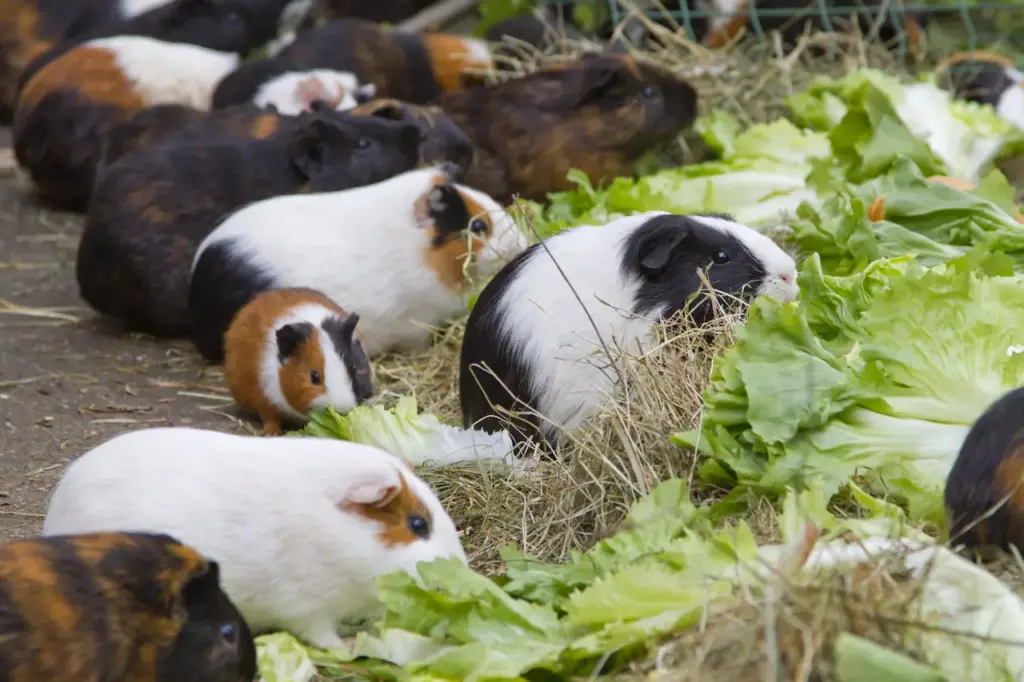
What Is The Downside Of Cauliflower For Guinea Pigs?
Cauliflower’s calcium and phosphorus levels can cause concern for guinea pig owners when adding it to their diet. You should moderate the calcium intake to prevent bladder stones. Cauliflower is a good source of calcium, but too much can be a problem.
You should also check the pesticides that are on your cauliflower. Pesticides are used in large quantities to protect the vegetable from insect damage. These pesticides are toxic to guinea pigs, so you should wash your vegetables thoroughly before feeding them.
If you decide to add it to their diet, you must monitor their waste. It’s the best way to determine if the amount of food you give them is too high and you need to reduce it or stop giving it.
Can Guinea Pigs Eat Cauliflowers? But Do They Enjoy It?
It’s true! They do!
What Should You Feed Your Guinea Pig?
It is important to wash the cauliflower thoroughly before serving it to your guinea pig. This will ensure that any pesticides are removed. To see how your guinea pig reacts, you can give them a small portion of the cauliflower at first. It’s okay to give them the full portion of one-inch floret if it all goes well. You should limit the amount of time you give your dog every week.
In General, You Can Feed Your Guinea Pigs Cauliflower.
Keep in mind that guinea pigs should only have cauliflower once or twice per week. This will keep them healthy and safe! Be sure to watch their reactions to determine what’s best for them.

